The Grateful Web's Josh Baker recently had an opportunity to speak to Portland, Oregon based Twisted Whistle about how they became a band, what musical inspirations affected them, their current tour and much more.
GW: So how long have you guys been together for?
Jeff: Almost eight months.
Matt: Thanksgiving is right around a year.
GW: Did you guys all know each other before? Did you play in other bands together?
Kina: Matt and I are married. We’ve known each other for thirteen years… almost. And we knew Dave, his other band Sneakin’ Out hired me to come play cello for their “Sgt. Pepper Project”, they had a chamber ensemble, so that’s how I met him…
At this point a young woman passes us in the street, and tells the band great job. They say thank you, wholeheartedly.
GW: See I’m not the only one.
Laughs.
Kina: So yeah, that’s how I met Dave and then Matt got involved in that the second time those shows came around. And then, when Dave put together a “Dark Side of the Moon” [chamber ensemble], he hired Jeff to sing the lead. We had been rehearsing and we all showed up to rehearsal one day but it was only the four of us that came. None of the other people showed. So we were like, “We don’t need to rehearse ‘Dark Side’”. So we started playing some of our tunes, and before that Dave had already started pickin’ some mandolin with us…
Dave: About exactly a year ago.
Kina: Yeah, yeah, just for fun. And then when Jeff came in we really started pushing it. We flew into tons and tons of gigs immediately.
Matt: It pretty much sounded like that [tonight’s gig] right off the bat.
Laughs.
Matt: It was pretty much just like, “Oh, God. You guys are in my band, so make arrangements. I’m not giving you a whole lot of choice in this”.
Laughs
GW: So how long have you guys, individually, been playing music for?
Dave: I’ve been playing mandolin for about fifteen years, but total I have about thirty-one years in.
Matt: I realized I got over twenty and then stopped counting.
Kina: I’m at a little over twenty. I started piano when I was three, so about twenty three years.
Jeff: About seventeen years.
GW: The first thing that drew me to the band was the harmonies. So out of the “Dark Side” rehearsal, when it was just the four of you, did you realize the blend of your voices was unique?
Kina: Yeah, um, what was the first song we did?
Jeff: It was “Dark Hollow”.
Kina: Yeah it was “Dark Hollow”. That was the first one. And Matt and I had already started doing that song just the two of us when we were playing as a duo.
Matt: And then, actually, Jeff brought it up.
Kina: Jeff was like, “Do you guys know ‘Dark Hollow’”? And we said yeah we had been playing it for a while, so then we just launched into it and his harmony was there immediately. So we knew about the voices almost immediately.
Jeff: And pretty much any song that we all collectively know the harmony is already there. We don’t even have to discuss it. Actually, a good three to five songs we know now were played through gigs, without rehearsal.
Matt: ‘Spoonful” [one of their more groovy covers usually sandwiched between two chunks of ‘New Speedway Boogie’] was actually something I just threw at them during a gig. And by the second chorus they had those harmonies there.
Jeff: And I had never heard it before.
GW: That’s pretty impressive.
Jeff: Well it’s only one word.
Laughs.
Kina: That’s actually a really fun video, I think it’s on youtube somewhere. You can actually see Jeff and I look to each other, and then Matt looks to us and nods and then I look to Jeff and he’s already there.
Laughs.
GW: So you guys obviously play acoustic. What is it about that sound and feeling that you prefer?
Matt (obviously sarcastic): It’s cheap. We can afford the instruments.
Kina: You can do it anywhere. I love playing in the woods. And I think the Twisted Whistle energy really works best in a warm atmosphere, like around a fire, and that’s my favorite place to play. So that’s why I like acoustic instruments best. You can put them anywhere and play anywhere.
Jeff: Best crowds ever.
GW: That’s interesting because one thing I was noticing in there was that you guys can command a crowd. You had people singing the words to songs that weren’t covers, like “Lost Coast Highway”. I saw people walking up and down singing it. So that’s obviously a good thing.
Laughs.
GW: And going off “Lost Coast Highway”, those lyrics are amazing. That’s an original, right?
Kina: Well, that song was actually written by my brother’s best friend when they were in high school. And my brother is eight years older than me and they were in a band and they played that song. And I always remembered it. So when my brother was teaching me how to play the guitar I started playing it. And when I decided that I wanted to bring it to the band, I actually contacted Josh Hanson, who wrote the song, and asked if it was okay to play it. And it never had that bluegrass feel, it was more of a pop kind of thing. But when I brought it to the band it was so obvious [that it needed the change].
GW: So how does your songwriting process work? A lot of it just seems to be there.
Kina: Yeah, well, the music comes very naturally. Everybody is just there, and everybody writes their own parts.
Matt: Somebody brings in a song and we all get giddy and excited like we’re six.
Laughs.
Matt: (Doing an impression) “Oh we can do this, and we can put harmonies here and we can do jazz hands.
David: Most of the originals that we do now, we kind of had built in. (To Kina and Matt) You had those from years before, right?
Kina: Right. Some of them are my brother’s songs. That “Willy Get Your Gun” song [which they performed with gusto and Kina wailed on] is one of the newer ones that I wrote. But, yeah, the songwriting process it’s-
David: (Quietly in the background) There isn’t one yet.
Laughs
Matt: There really isn’t.
Kina: But really what happens, for the songs I’ve brought to the band, I’ll bring it in and then someone will give an idea and then we’ll just fill it in and change it in whatever way. Sometimes I want to do it and change a song one way or the other and everyone says, “No, we don’t have a song that sounds like this. We need to have that feel.” And actually there’s another brand new song that I’m excited to bring. Matt and I played it as a duo at a show the other night, but we haven’t played it as a band yet. But, yeah, the song writing process is very simple. It’s just like, “Here guys!” And everybody says, “Okay!”
David: Write a song, play the song.
Laughs
GW: Sounds difficult.
Laughs.
GW: One thing I really enjoy is that you guys make each song sound so different from the next. There are so many bands that play songs that all sound the same. There’s no real change. So, for you guys, are there certain emotions behind one song that you won’t put behind another?
Matt: Those truths behind a song don’t usually come out until you’ve played it a bunch of times. And it’s happened to me a hundred times where you’ll play a song for years and then you go, oh [light bulb], I get it. Even with originals sometimes you go, “Oh, that’s what I meant. Now I get what I’m saying.”
Laughs.
Kina: I get really caught up and emotional during songs (self-perpetuated laughter). I can’t keep my eyes open and I kind of get lost in it and… I don’t know. I think we really jive well, the four of us, and we can really move together without ever speaking.
GW: I was noticing that. You had a lot of looks going on stage and you all knew where to be. It’s very cool.
Kina: Yeah, yeah, so I don’t think it’s intentional [the varying emotions]. I think that it’s just… we’re a really diverse band. We can really play any kind of music. I mean we’ve done Pink Floyd, um…
Matt: Snoop.
GW: Yeah if you can make Snoop a little blue-grass then you are on your way.
Kina: Yeah. And then we do “Use Me”, so we got blue-grass, rock and roll, we got some folk. We got all these different things and it just happens that way, you know? We all have just totally different musical tastes, backgrounds, inspirations-
David: We play what we like.
Kina: Yeah, exactly. And I think we become the continuity, not necessarily the genre or the style.
GW: One thing I’ve noticed is that you guys like to play a lot of Dead tunes. What is it about their music that you like playing?
Kina, Jeff, David: (All at once) Matt!
Laughs.
Matt: I’m a life-long Deadhead, so that’s it.
Laughs
Kina: There are also a lot of great harmonies, you know. And it gets people dancing and we, Matt and I, love the Dead so we’ve just been playing that stuff for years.
Matt: And you know, sometimes they fall a little short of kicking it in the ass.
Laughs
Matt: A lot of the Dead songs are songs I’ve always wanted to kick in the ass real hard.
Kina: And it’s fun to do your own thing with them.
GW: Yeah, you guys do a great “New Speedway Boogie”. I like how you sneak “The Other One” in there a little bit, and sometimes you’ll throw some other tunes in there as well. And going off that, you really know how to build your songs, which isn’t as easy as it sounds. Every time I see the band live I think of a rubber band. You build and build but then you bring it back and then you bend it a completely different way without ever letting it break. It’s unbelievable. What do you like about that kind of playing?
Matt: It’s exciting every time. We never get bored.
Kina: (To Jeff and David) Will you guys please talk!
Matt: Yeah, what the fuck?
Laughs.
David: You guys are doing great.
Laughs.
David: Seriously! You guys know the back story, you’re being calm and collective.
Kina: Well I just think that would be a good one for you guys to respond to.
David: What was the question?
Laughs
David: Sorry, I was talking.
GW: I was just saying your songs are different every time. They are constantly changing and you really know how to build them, quite powerfully in fact. What is it that you like about that style?
David: What is it that we like about it?
GW: Yeah.
David: That it’s different every time. It keeps you on your toes.
Matt: That’s exactly what I just said.
Laughs
David: What he said.
Laughs
David: But listen, I would like to say that being from an instrumental band, Sneakin’ Out is all instrumental and I’m kinda up front doing the singing on the mandolin all the time, to be a side guy in a band that’s so rich in vocals… it’s exciting, it’s new, no one else is doing it, you guys got the market as far as the vocals. I mean… (He pauses to give his band mates a round of applause)
Laughs.
GW: And speaking of the vocals, the three of you (Matt, Kina and Jeff) all have unbelievable voices. But Jeff man, what was the third song you sang tonight?
Jeff: “Use Me”.
GW: Yeah, “Use Me”. I’ve seen you guys do it a couple times before and every time you sing it you get me right in the heart. Every time! So do you have a singing background or did you just wake up one morning signing like a bluesman?
David: He’s actually a plumber.
Laughs.
Jeff: I do web development by trade, but I don’t normally do that, but I did go to college for vocal performance and I just got out pretty recently, within the last two years or so.
GW: Where did you go?
Jeff: Linfield College.
GW: Where is that?
Jeff: McMinnville, Oregon.
GW: Very cool
Jeff: But before that I had a woodwind background. From the fifth grade up I played all the woodwinds and that kind of stuff, so it was fun to go into vocals finally. I plan on singing more.
GW: I hope so. The three of you together is earth shattering. It’s ridiculous.
Laughs
But one of the first things I noticed was that Kina, you have a cello instead of a stand up bass or an acoustic bass. What is it you prefer about the cello?
Kina: Um, I play the cello.
Laughs
GW: I guess I kinda deserved that.
Laughs
Kina: But I also think it’s kinda gimmicky, it’s cool. I like that I play an instrument that still has room to be developed. Everything hasn’t been done on the cello. And you know sometimes I’ll even lay down hip-hop beats on the cello just to explore new territory and innovate my instrument. It’s cool to be on an instrument where there is still room to do that.
GW: And you do a great job of making it sound different on each song. Sometimes it is just a bass line plugging away or sometimes… I feel like an idiot because I can’t remember the name of the song you guys do that starts with the cello.
Jeff: “Almost Drowned”
GW: There you go.
Kina: That’s Michael Bigley, my brother, who wrote that song.
David: It’s cool because sometimes you’ll switch to bow and play a higher register part and you [Matt] cover bass with just the bouncin’ finger, you know… so to speak.
Laughs
Jeff: The frolicking finger.
Laughs
GW: So what direction do you see the band going in?
David: East.
Laughs.
Jeff: You’re dealing with a bunch of smartasses.
Matt: We can’t go west so most likely south.
David: Yeah we’re going south.
Laughs
Jeff: I think we haven’t thought about it because we haven’t really cared, because it seems to be doing it for us. It’s like a roller coaster.
Matt: Yeah, we’re just on for the ride.
Jeff: It’s like a fucked up Chia-Pet that you don’t even have to water.
Laughs.
David: One of the keys, and I’m sure of this, is that, with the exception of you [Jeff] just because you’re new period to this social circle, we’re all really good friends. We hang out and party unrelated to music, and then we bring it all to the stage and it’s like built in success.
Kina: You know what I always used to say about Dave, and the other guys as well, is that you’ve got friends who are musicians that you play with and you’ve got friends that you hang out with. But Dave was one of those people that I would just as much like to hang out and jam as I would hang out. So it was always really fun.
Dave: Thanks Kiner.
Laughs.
GW: So I guess my last question is what do you guys enjoy most about the Portland music scene?
Jeff: It’s everywhere. It’s not a being separate from the social scene: it’s a part of it. It’s like the good version on incest, you know what I mean?
Laughs
Kina: I get ya’.
Matt: Portland is one band; it’s called Portland.
GW: That’s one thing I’ve noticed, it’s a real community. I just moved out here from L.A. a few months ago, so it’s awesome to see other bands listening to your set and then they go on and you jump in.
David: It’s really great because you can find live music here seven nights a week.
Kina: It’s everywhere.
David: None of it pays but it’s everywhere.
Kina: I always joke around with my friends on facebook and stuff, because there are so many people posting about all these shows and it’s just like, “Hey, I need to not have so many talented fucking friends. There are too many shows! I can’t go to all your shows guys.”
David: And do your own.
Kina: And play my own. What are you supposed to do?
Matt: Every band gets one show every three months.
Jeff: Joint visitation.
Laughs
GW: Well that’s all I have for you guys. Thank you very much.





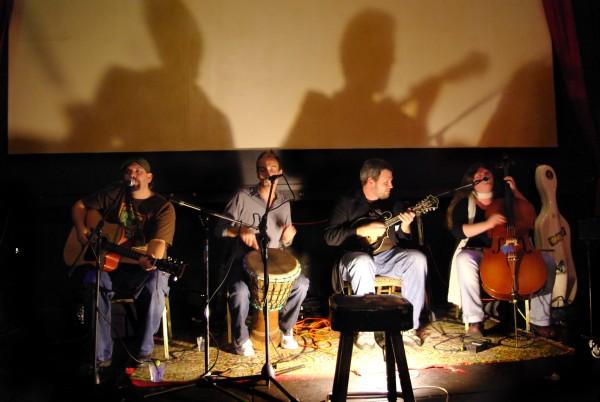
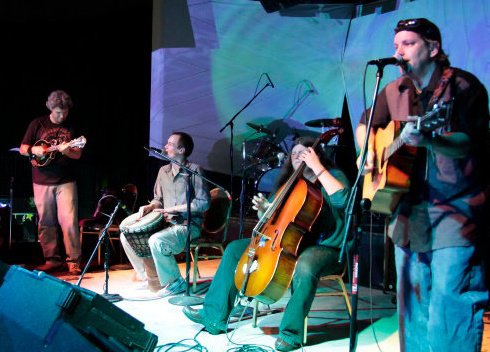
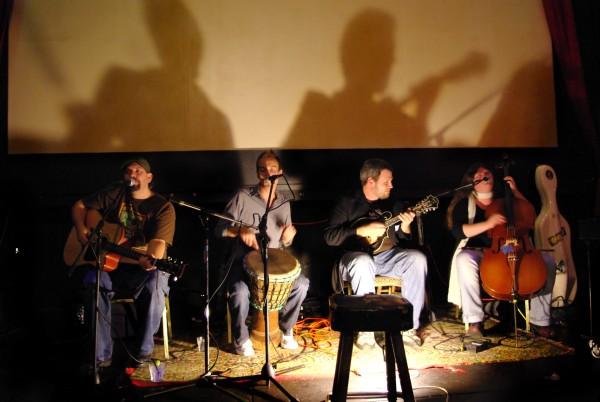 But while this eagerness to play may have turned less adventurous musicians away, it only served to solidify what the group already knew. “It pretty much sounded like that [tonight’s gig] right off the bat,” says Franzen on the band’s crisp, unified sound. “It was pretty much just like, ‘Oh, God. You guys are in my band, so make arrangements. I’m not giving you a whole lot of choice in this’”.
But while this eagerness to play may have turned less adventurous musicians away, it only served to solidify what the group already knew. “It pretty much sounded like that [tonight’s gig] right off the bat,” says Franzen on the band’s crisp, unified sound. “It was pretty much just like, ‘Oh, God. You guys are in my band, so make arrangements. I’m not giving you a whole lot of choice in this’”. And it’s this kind of thinking that keeps the Whistle blowing.
And it’s this kind of thinking that keeps the Whistle blowing.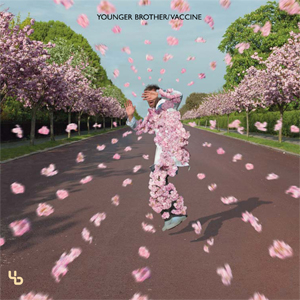
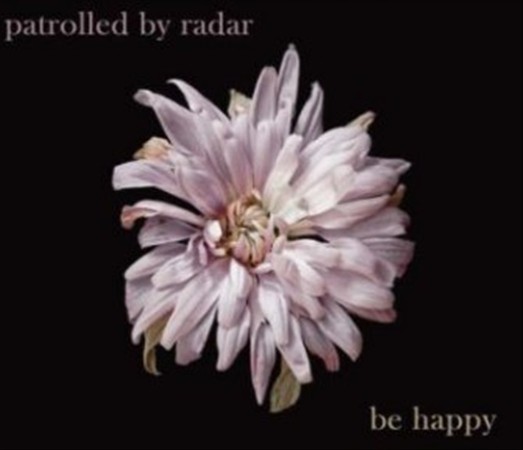
 What is most striking about Be Happy, as a whole, is its truth. There is no other way to put these songs together and no other way to play them, so it leaves the listener without the recent phenomenon of questioning the music and seeking alternatives in a similar vein. It simply is. And that is as rare as it is beautiful.
What is most striking about Be Happy, as a whole, is its truth. There is no other way to put these songs together and no other way to play them, so it leaves the listener without the recent phenomenon of questioning the music and seeking alternatives in a similar vein. It simply is. And that is as rare as it is beautiful.
